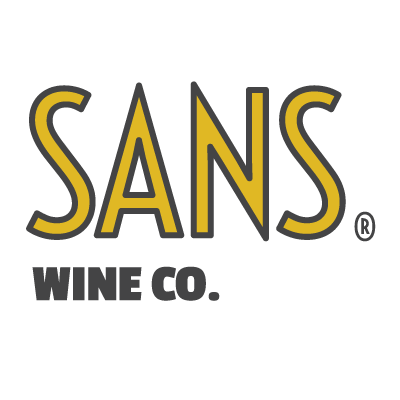No, canned wine won’t have a metallic taste or finish. All aluminum cans are lined (canned soup, tomatoes, soda cans) and the thickness of the liner depends on how corrosive the product is inside. The liner is what keeps the wine from coming into contact with the aluminum. The liner on all of our cans is BPA free too!
Frequently Asked Questions
Will wine in a can have a metallic taste or finish?
Is there a shelf life for canned wine?
There is no stated shelf life for canned wine! Can manufacturers often only warranty the cans for a 12 month period, and that causes confusion with shelf stability. Sans Wine Co. produces wines that are ready to be enjoyed the moment they are purchased, however, we maintain a healthy library of back vintages and taste them periodically to ensure quality. Wine in can ages slower than in bottle. With canned wine there is no Ultraviolet light penetration, no oxygen exchange, and the headspace of the can is filled with liquid nitrogen…creating a much more stable environment than glass bottles. Our first vintage of canned wines, taste just as great as the day they were filled!
What if I don’t finish my can? How can I store it?
Tightly seal the lid with a cap, or with aluminum foil and put it in the fridge. Your wine will be good for another 1-2 days.
How should I drink canned wine?
Drink it however you want to: straight from the can, poured into nice stemware or stemless wine glasses, from a water glass. Our wines are meant to be enjoyed in any setting and with or without glasses!
Should I chill down all of your wines, or just the white and rosé cans?
We like to drink all of our wines chilled down, including our red wines! Our Carbonic Carignan and Zinfandel are especially delicious with a slight chill.
Your wines are cloudy when I pour them into a glass. Is that normal?
Yes, this is normal for our wines, which are made in a “natural” style. We do not fine or filter any of our wines because we feel those processes strip away delicious flavors and aromas, and we want you to have the best experience possible drinking our canned wines.
What does Carbonic mean? Is that a grape variety?
“Carbonic” is a fermentation style that is an anti-oxidative method of winemaking. Beaujolais Nouveau is a notable wine made in this style. Our Carbonic style involves placing 100% of the grape clusters (stems and all) in a sealed tank. The fermentation occurs in the interior of the grape skins, until each berry bursts open! The resulting wine is a fruit forward, juicy, yet savory combination that on occasion will retain some CO2 (ie: bubbles).
$10-$25 seems like a lot to pay for a can of wine. Why does Sans Wine Co. cost more than the other canned wines I see at the store?
Because we make “real wine” that just happens to be in a can. Each of our cans is 375ml (a half bottle of wine). We only work with organically farmed old vineyards, and we also farm two properties in the Napa Valley ourselves. Each vineyard is hand-harvested (most mass produced wine is machine harvested), with meticulous care throughout the growing season. Our $10 Sauvignon Blanc means you’re drinking a $5 glass of organic, dry farmed, natural wine. We think that’s quite a steal!
Does natural wine give you a hangover?
If you drink too much of ANYTHING, you will get a hangover! We do not manipulate, nor add sulfites, sugar, or any of the additives that are legally allowed in winemaking. We do not claim to make “hangover free” wine, but you can be confident about what you are getting when you buy wine from Sans Wine Co. We do have customers tell us that they wake up the next morning after drinking a fair amount of wine feeling great, but everyone reacts differently to alcohol.
Can I drink Sans Wine Co. if I am keto, have celiac disease or am vegan?
You betcha! We do not fine our wines (wineries who fine/clarify their wine often use fish bladders or egg whites), so they are vegan friendly. There is no gluten in our wine (surprise – there’s no gluten in any wine!), and all of our wines are fermented dry, so there is less than 0.1 g/l residual sugar in any of our cans. We hate to break it to you, but all wine has some kind of natural sugar. No wine is considered sugar free.


